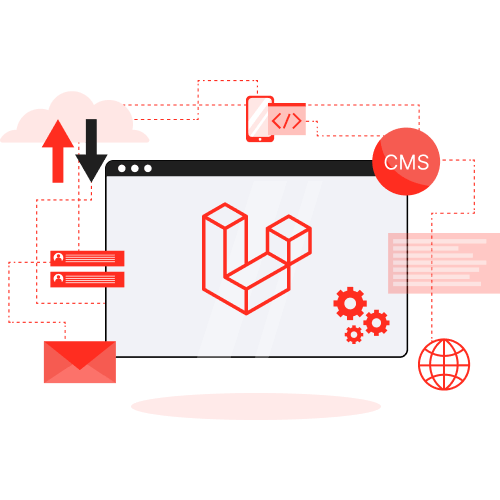
Table of Contents
ToggleUnderstanding the E-commerce Landscape in Qatar
The e-commerce market in Qatar has witnessed significant growth over the past few years, driven by the rapid digital transformation taking place across various industries. As consumers increasingly turn to online platforms for their shopping needs, the demand for e-commerce solutions has consequently surged. Industry reports indicate that the Qatari e-commerce sector is projected to continue expanding, presenting numerous opportunities for businesses willing to adapt to changing consumer preferences.
Key trends influencing the growth of e-commerce in Qatar include rising internet penetration, enhanced mobile connectivity, and the increasing popularity of social media platforms as tools for product discovery. According to recent statistics, as a result of a tech-savvy population, the online shopping experience has become more prevalent. Consumers are now seeking convenience, competitive pricing, and a diverse array of product offerings, prompting traditional retailers to explore digital avenues to meet these expectations.
Furthermore, the evolving consumer behavior, particularly post-COVID-19, has significantly contributed to the acceleration of e-commerce activities. The pandemic prompted many local businesses to pivot towards online selling, thereby highlighting the critical need for robust e-commerce websites that offer seamless user experiences. Consequently, understanding these shifts in consumer behavior is essential for any business aspiring to thrive in the Qatari market.
Local and regional market dynamics also play a pivotal role in influencing e-commerce development. Competition is growing among local and international players, necessitating the adoption of advanced technologies to enhance operational efficiency and customer engagement. As such, businesses must focus on partnering with a capable e-commerce website development company that can provide tailored solutions, keeping pace with industry changes and consumer expectations. This strategic approach will ensure a strong market position in the increasingly digital retail environment of Qatar.
Key Features to Look for in an E-commerce Development Company
When selecting an e-commerce website development company in Qatar, it is essential to consider several critical features that are instrumental in establishing a successful online retail platform. First and foremost, expertise in various e-commerce platforms is vital. The company should have extensive experience working with prominent platforms such as Shopify, WooCommerce, Magento, or custom solutions that suit specific business needs. A diversified skill set indicates the company’s ability to deliver tailored solutions that align with your business goals.
Another significant aspect is custom design capabilities. An effective e-commerce development company should offer unique and user-friendly design elements that reflect the brand’s identity while ensuring an optimal shopping experience for users. Personalized designs help distinguish your online store from competitors and are critical for capturing the attention of potential customers.
Mobile responsiveness should also be a priority in your selection process. With the growing trend of mobile shopping, it is essential that your e-commerce website is fully optimized for mobile devices. A responsive design not only enhances usability but also improves search engine rankings, which ultimately drives traffic to your site.
Furthermore, implementing SEO best practices is a must. The company should have a clear understanding of on-page and off-page SEO techniques, which are crucial for improving visibility on search engines. This includes keyword optimization, meta tags, and creating SEO-friendly URLs, all aimed at boosting organic traffic.
Lastly, adequate post-launch support is essential for ongoing success. The ideal e-commerce development company will offer continuous maintenance services, updates, and troubleshooting assistance to address any issues that arise after the website goes live. This comprehensive support ensures your online store remains functional and competitive in the ever-evolving e-commerce landscape.
Top E-commerce Development Companies in Qatar
As e-commerce continues to thrive in Qatar, numerous development companies have emerged, exhibiting expertise in crafting tailored online platforms. Here, we highlight some of the leading e-commerce website development companies in the region, which are noted for their specialist services, impressive project portfolios, and positive client feedback.
One prominent player is Qatar Web Solutions, renowned for its comprehensive digital marketing and web development services. They specialize in creating user-friendly e-commerce platforms that are optimized for both desktop and mobile devices. Notable projects include successful online stores for local businesses in fashion and electronics, showcasing their ability to meet diverse client needs. Client reviews emphasize their responsive customer service and commitment to delivering high-quality results.
Another leading company is Inovar, which focuses on providing bespoke e-commerce solutions tailored specifically for the Middle Eastern market. Their development process prioritizes scalability and security, essential for businesses looking to expand their online presence. Inovar’s portfolio boasts collaborations with major retail brands, demonstrating their capacity to handle large-scale projects. Clients have praised their innovative designs and consulting approach that fosters long-term partnerships.
Qatar E-commerce is also noteworthy, particularly for its expertise in implementing cutting-edge technologies like artificial intelligence and machine learning in e-commerce platforms. Their notable projects include an advanced online marketplace that integrates various payment gateways, enhancing user convenience. Client feedback consistently highlights the company’s strategic insight and adaptability to changing market trends.
Lastly, Pixel4Design stands out due to its creative approach to e-commerce website development. This company is known for its visually appealing designs and intuitive user interfaces that enhance customer experience. They have successfully executed projects across multiple sectors, with a focus on branding and digital strategy. Testimonials from clients underline their professionalism and the effectiveness of their design solutions.
Best Practices for Collaborating with Your E-commerce Development Partner
Collaborating with an e-commerce development company is a critical component in ensuring the success of your online business. The following best practices can help streamline the partnership and foster a productive relationship that benefits both parties.
Firstly, effective communication is paramount. Clear and regular communication helps to eliminate ambiguity and aligns expectations. Establishing preferred communication channels, such as emails, project management tools, or scheduled meetings, enables both you and your development partner to stay updated on the progress of the project. Set a communication schedule to discuss milestones and address any questions or concerns that may arise throughout the project.
In addition, it is vital to set realistic timelines and budgets. Understanding the scope of the project and discussing it with your e-commerce development partner will help to create a feasible timeline and budget. While it may be tempting to rush the process to launch quickly, taking the necessary time for thorough development will ensure a quality end product. Both parties should agree on a timeline that integrates buffer periods to accommodate any unexpected challenges that may arise during development.
Defining project scope is equally important. Clearly outline the features, functionalities, and design elements you expect from the website. This clarity will guide your development partner in understanding your vision and help mitigate any potential misunderstandings later in the process. Including detailed specifications in your initial discussions can reduce the likelihood of scope creep, which can lead to increased costs and delays.
Lastly, establishing metrics for success is crucial for tracking progress and evaluating the effectiveness of the collaboration. These metrics should include key performance indicators (KPIs) related to user experience, conversion rates, and overall site performance. Regularly reviewing these metrics can provide insights into whether the partnership is meeting its objectives, allowing for timely adjustments as necessary.






